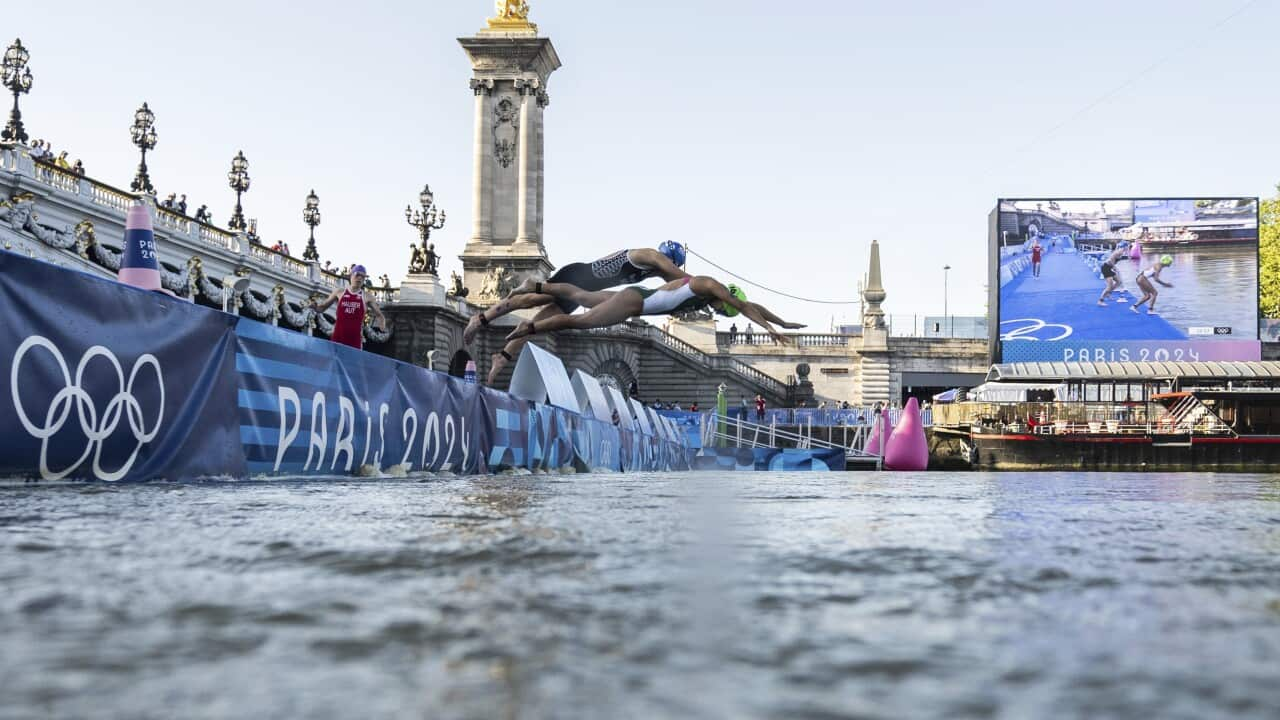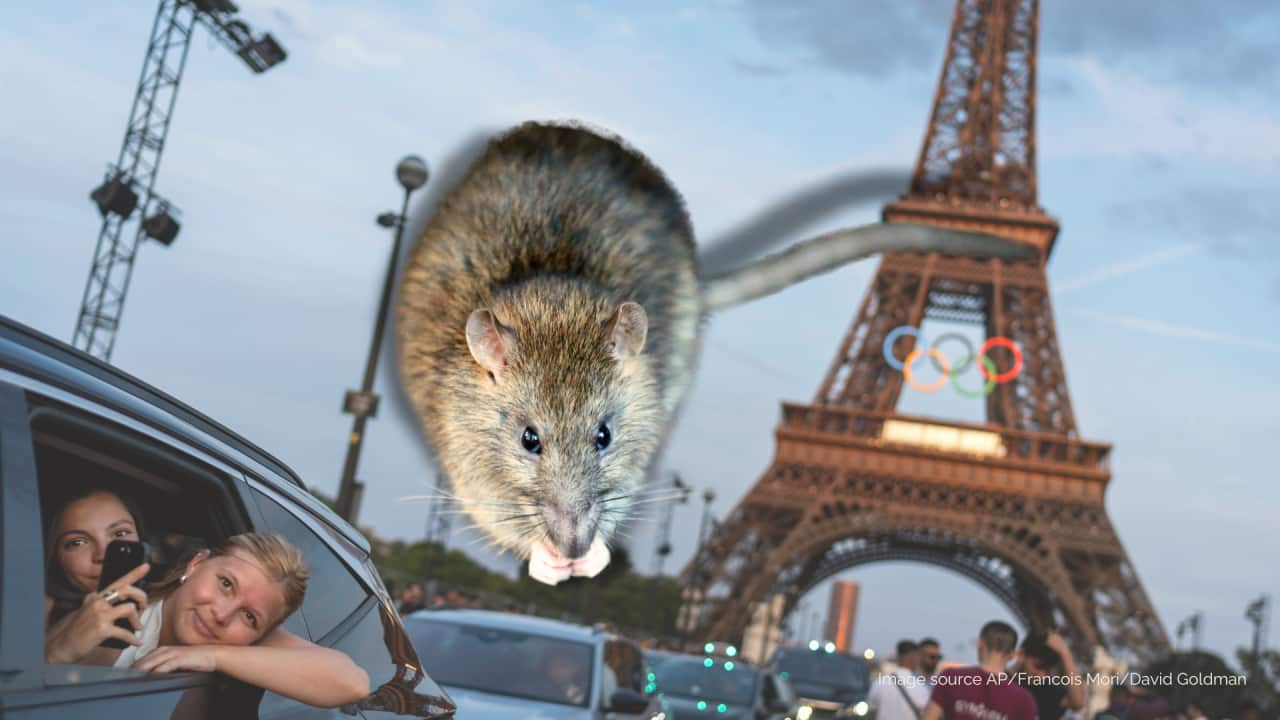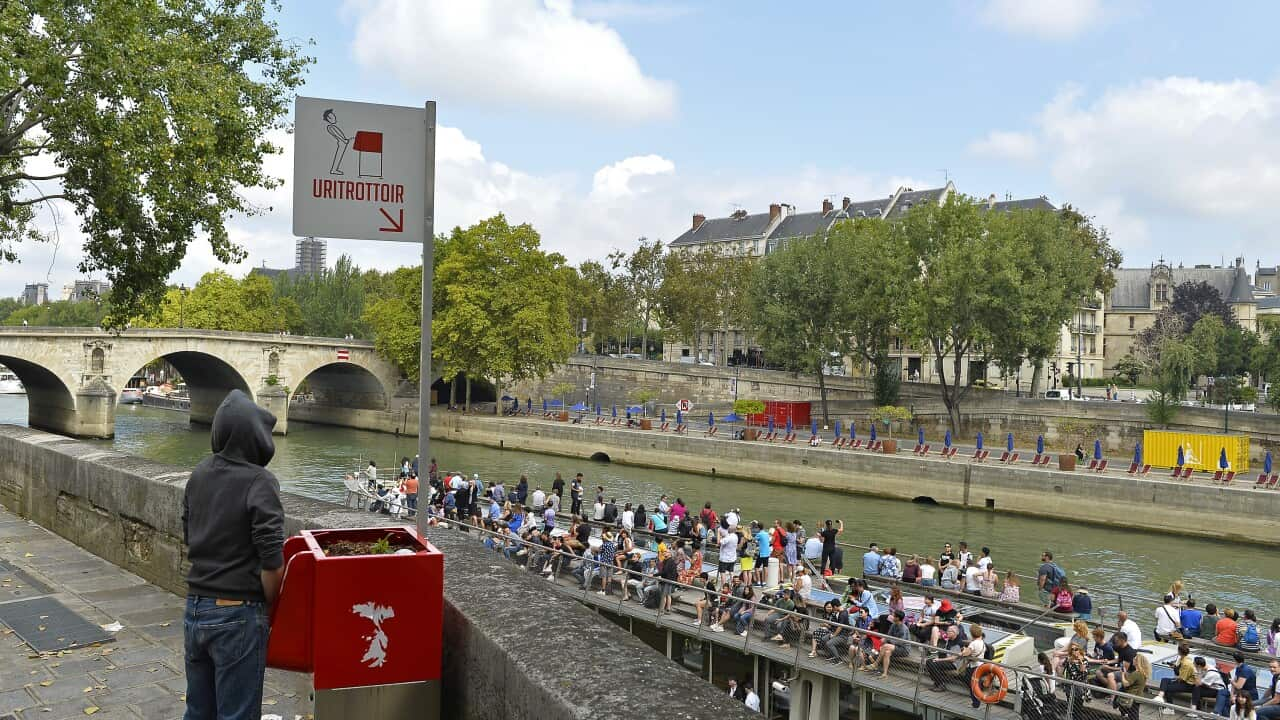With Australians set to compete in marathon swimming events in Paris' Seine in the coming days, questions are being raised about the health effects of the river after multiple athletes from other countries have fallen ill following swims in the river.
Earlier this week, Belgium's Claire Michel pulled out from the mixed triathlon race because she was hospitalised after swimming in the Seine last week. While Belgian Olympic officials did not elaborate on her illness, Belgian media reported it as an E. coli infection.
Swiss athlete Adrien Briffod fell ill with a stomach bug after swimming in the river last Wednesday, though Swiss officials said it was "impossible to say" whether his disease was linked to the swim.

Belgium's Olympic committee announced that it would withdraw its team from the mixed relay triathlon after competitor Claire Michel, who swam in the Seine River, fell ill. Source: AP / David Goldman
Swim test cancelled over water concerns
On Tuesday, a test session to allow Olympic athletes to familiarise themselves with the open water marathon swimming course was cancelled due to further concerns over water quality in the Seine River.
Another swimming test event is scheduled for Wednesday, and organisers will decide early whether it will go ahead, a statement said.
Swimming in the Seine has been banned for over a century. Since 2015, organisers have invested $1.5 billion to prepare the Seine for the Olympics and to ensure Parisians have a cleaner river after the Games.
Paris Mayor Anne Hidalgo took a highly publicised dip last week in a bid to ease fears. However, once the Olympics kicked off, competitions such as the men's triathlon were postponed due to pollution levels.
Organisers have said that the presence of bacteria in the river has been at levels considered safe for the athletes.
What are the risks of swimming in polluted water?
E. coli and Enterococcus faecalis are two types of bacteria that could pose a risk to athletes if they are present at high levels in the water.
E. Coli is commonly found in the lower intestine of warm-blooded organisms. Most E.coli strains are harmless, but some can cause serious illness. Symptoms include abdominal cramps, diarrhoea, fever and vomiting.
Enterococcus faecalis is a common faecal bacteria, also often used as an indicator of water quality at swimming pools and public beaches.
According to European standards, the safe limit for E. coli is 900 colony-forming units (cfu) per 100 millilitres while the threshold for Enterococcus is 330 cfu/100ml.
Benjamin Raigneau, director of water quality at the Paris city hall, said four main factors have an impact on water pollution, including rainfall, which contributes to more pollution runoff, the UV index and temperature, which affect how fast bacteria die, and the flow of the river — the faster the flow, the higher the pollution.
What have Australian athletes done to prevent infection?
It's been revealed that Australia's triathletes had been taking medicines to combat E.coli for a month, taking precautions ahead of the event amid concerns over pollution levels in the Seine.
"We started by administering a medication that's good against E.coli, which is the main bacteria in this water, a month ago," team doctor Carolyn Broderick told reporters.
"After the race, we've also been using prophylactic antibiotics and we're using skin washes, ear washes, eye washes. So we're trying to account for everywhere that may get infected essentially and similarly for our marathon swimmers."
What upcoming events are scheduled for swimming in the Seine?
The women's 10km marathon swim will take place on Thursday. The men's 10km marathon swim will be held on Friday.
Four Australians are on the entry list for open-water swimming — Nick Sloman, Kyle Lee, Moesha Johnson and Chelsea Gubecka.
The four athletes will contest the 10km marathon swim in the Seine.
If the competition cannot take place, the marathon swimming event will be held at the reserve site of Vaires-sur-Marne, where rowing and canoeing events are held.











